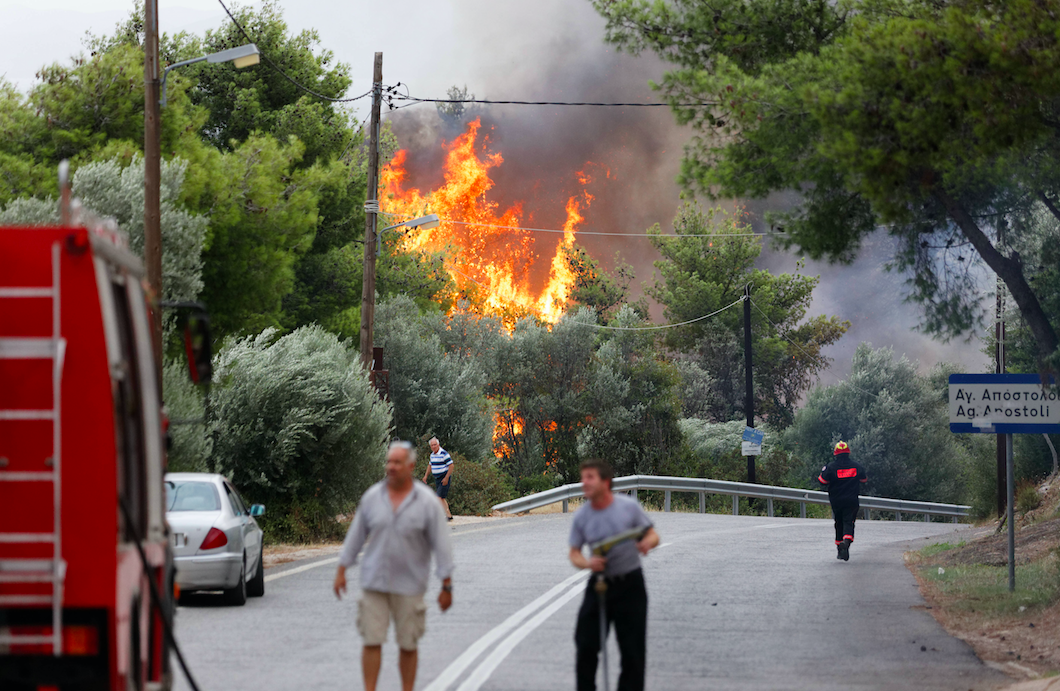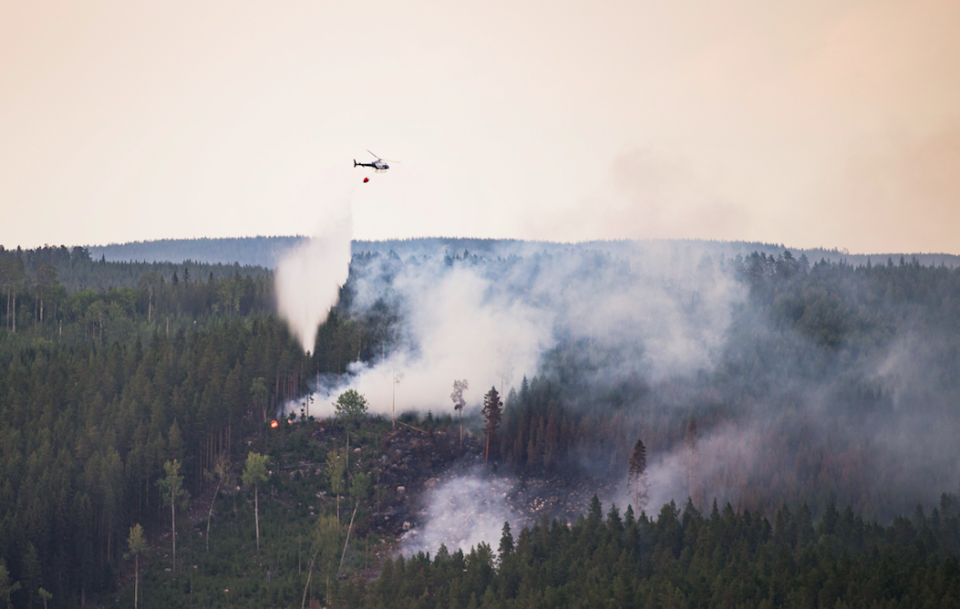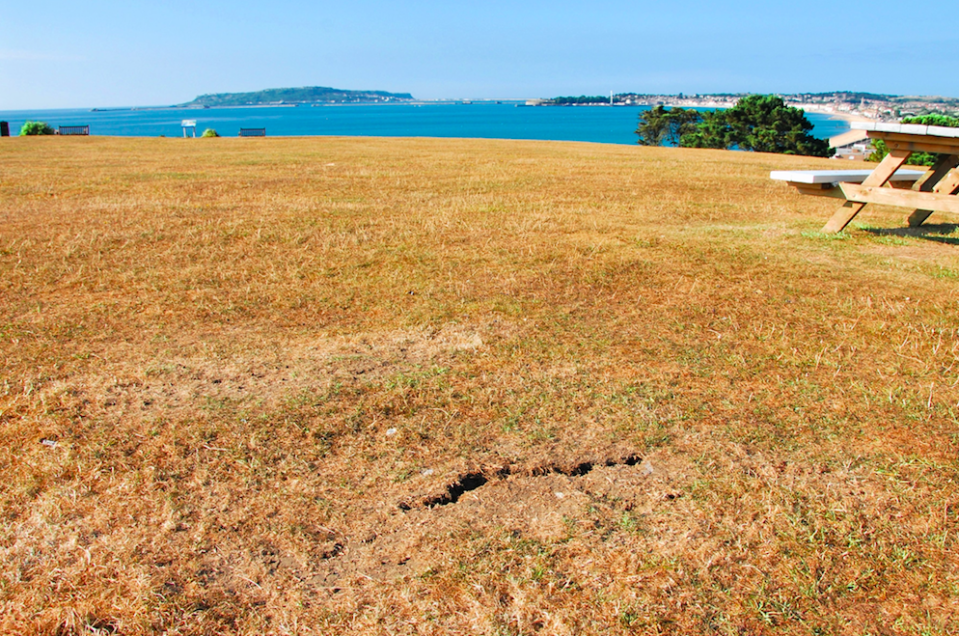How the heatwave is hurting the rest of Europe - and why extreme temperatures are now more likely

It’s not just the UK that is going through a heatwave, with parts of Europe also suffering from extreme weather conditions.
While Brits are sweltering in the unusually-long dry spell, other countries across the continent are also having a difficult time.
Wildfires in Greece have claimed the lives of scores of people, with emergency services battling to keep the flames under control.

Around 50 forest fires are burning in Sweden, while even in cooler northern countries like Finland, temperatures have hit 33.4C.
The Arctic Circle has seen temperatures top 30C, including Badufoss and Makkaur in Norway, while Ireland is suffering from an ‘absolute drought’,
Scientists have now warned that the rising global temperatures caused by human activity are making the heatwaves gripping the northern hemisphere more likely in future.
MOST POPULAR STORIES ON YAHOO UK TODAY
Landmark ‘no fault’ divorce ruling as ‘unhappy’ woman must stay married to husband of 40 years
Well I never! Plymouth couple find 17ft-deep hold under their living room
Police officer acted like a ‘bully in uniform’ after sawing through car windscreen
Sajid Javid faces legal action over death penalty for British IS fighters
Three children aged EIGHT prosecuted for speeding in last 18 months, figures show
Professor Peter Stott, Met Office science fellow in attribution, likened the increased chances of a heatwave to rolling a dice and getting a six – but that climate change was weighting the dice.
He said: ‘What we’ve seen this summer is repeated throws throwing up a six in different parts of the world.
‘If you get a six over and over again you start to think ‘This is not normal, somebody has given me a loaded dice’.’

Prof Stott said the chances of the 2003 heatwave in Europe happening was more than doubled by climate change, and predictions by climate models that heatwaves would increase in frequency ‘are coming true before our eyes’.
He said the ‘jury is out’ on the extent to which climate change is affecting the jet stream, whose current pattern is keeping an area of high pressure to the west of Britain and causing the hot, dry weather.
But he said: ‘It’s settled into a pattern here this summer, and what that means when it’s in this pattern, the Arctic temperatures are very much warmer, and temperatures are globally very much warmer, it’s fuelling these heatwaves.’

Figures from Nasa show last month was tied as the third warmest June in 138 years of modern record-keeping at 0.77C above the 1951-1980 average, with only June 2015 and 2016 warmer.
Professor Len Shaffrey, professor of climate science at the University of Reading, said: ‘Global temperatures are increasing due to climate change.
‘The global rise in temperatures means the probability that an extreme heatwave will occur is also increasing.’

Recent studies showed climate change had made extremes such the European ‘Lucifer’ heatwave, which hit south-east France, Italy and Croatia last summer, at least four times more likely, he said.
Dr Jeffrey Kargel, senior associate research scientist and glaciologist at the University of Arizona, said the upsurge in months-long extreme weather showed the climate is less stable than it was 30 years ago.
‘This profound instability seems to be the harshest effect of global climate change,’ he said, warning of the costs of extreme weather, from wildfires to agricultural losses during droughts.

 Yahoo News
Yahoo News 
